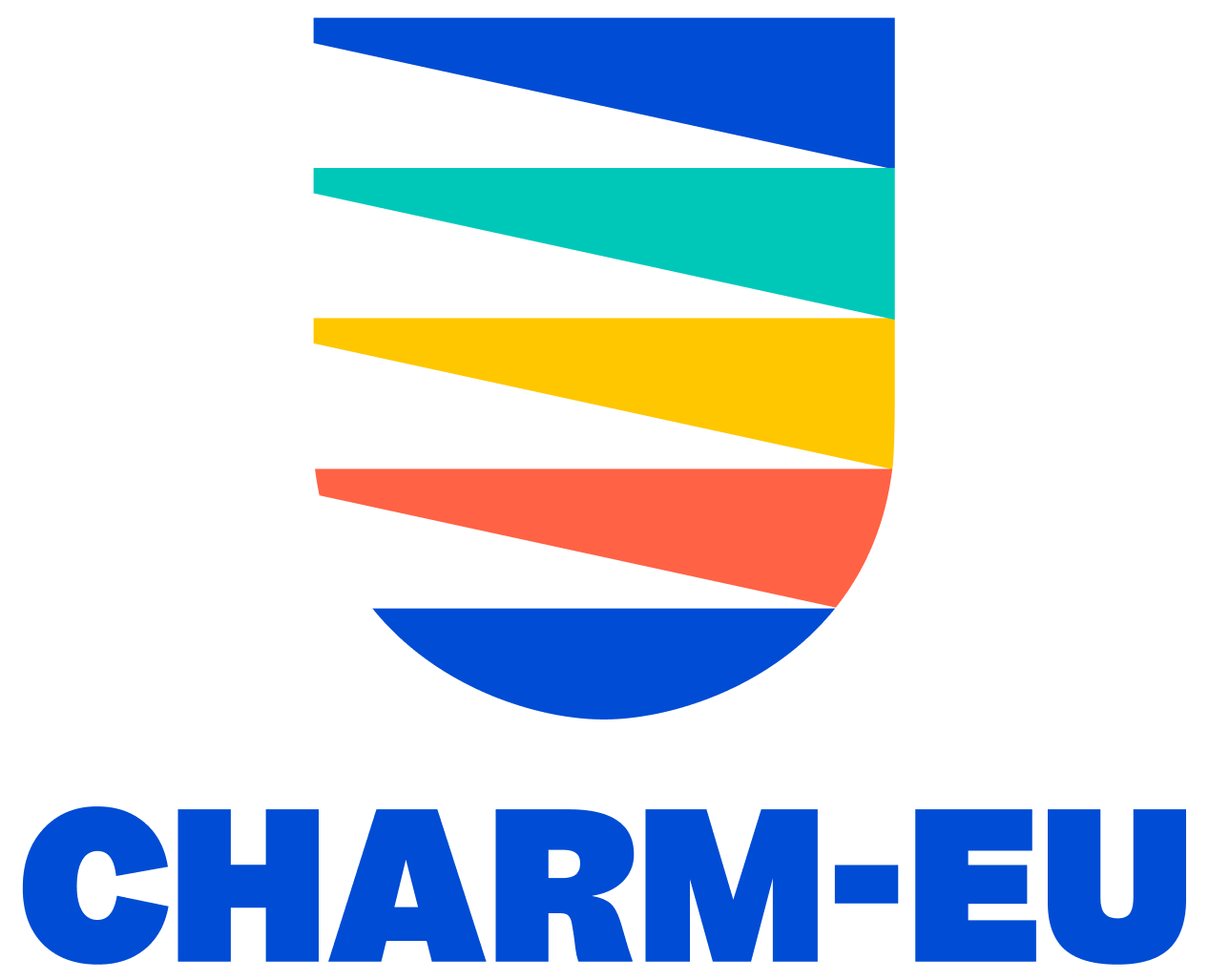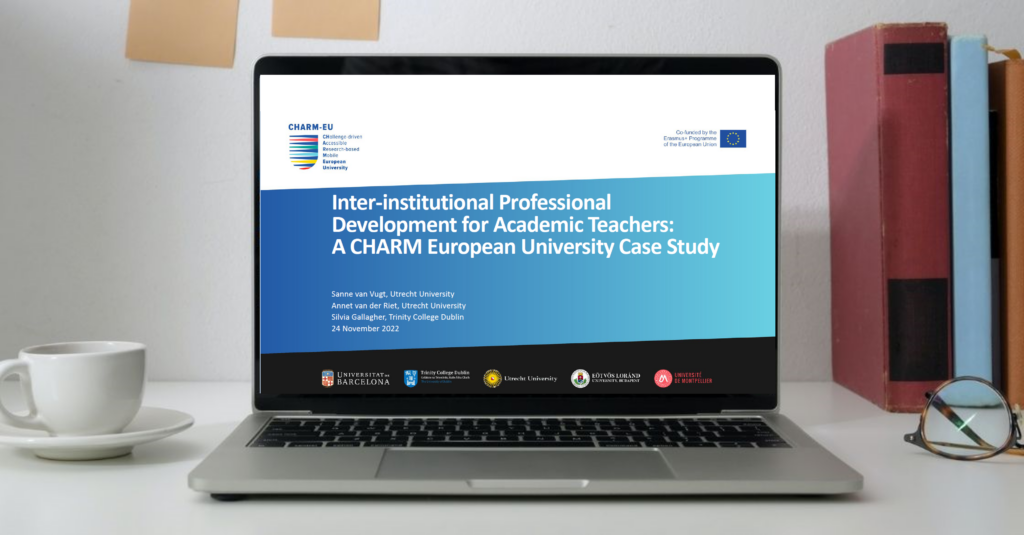“Inter-institutional Professional Development for Academic Teachers: A CHARM European University Case Study” is a presentation that was used for the Conference for European Association for Practitioner Research on Improving Learning in 2022. It was part of a 90 minutes case study session.
The slides contain the following topics: European Universities Initiative, general information on CHARM-EU, the Educational Principles and Master programme, Knowledge Creation Teams, a problem definition, a six-phased approach to Professional Development design, a detailed overview of Professional Development activities in CHARM-EU, two concrete examples of Professional Development, experienced challenges, and Lessons Learned.
Abstract:
The European Universities initiative aims at achieving structural and systemic collaboration between universities, leading to inter-university campuses (European Commission, 2022a). The European Commission hopes to trigger a deep level of transnational institutional cooperation between higher education institutions, leading to transformation of involved institutions (European Commission, 2022b). CHARM European University is one of the 41 alliances that is codesigning a new university model through transnational collaboration across five partner universities in Barcelona, Dublin, Utrecht, Montpellier, and Budapest. The first milestone in the project was the development of the joint Master’s programme “Global Challenges for Sustainability”.
The quality of CHARM-EU teaching and learning practices in the Master’s relies heavily on the knowledge and skills of academic teachers. However, teachers new to the CHARM-EU project must upskill and incorporate diverse CHARM-EU educational principles into their teaching (e.g. challenge-based learning, sustainability, trandisciplinarity). Educational professionals have developed a Professional Development Programme for teachers in CHARM-EU, responsible for the design 36 and delivery of the Master’s. Different professional development strategies were used to stimulate continuous learning.
This case study provides a useful six phased framework with practical recommendations for institutions seeking to develop inter-institutional professional development programmes, and understand the complexities involved in successful collaboration.

